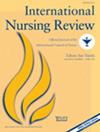动机在护士和助产士之间建立和维持指导关系中的作用
IF 3.8
3区 医学
Q1 NURSING
引用次数: 0
摘要
目的了解临床医生参与指导的动机,以支持在医院环境中工作的新毕业护士和助产士。背景护理和助产方面的文献已经证实了指导的益处以及影响正式指导计划有效性的挑战。在缺乏制度化指导的强制地位和相关奖励的情况下,还没有研究探讨过医院护士和助产士进行指导的动机。方法对在乌干达西部、北部和西北部三家公立医院工作的 35 名护士和助产士进行描述性定性研究。采用半结构式访谈收集数据。对数据进行了反思性专题分析。我们遵守了 COREQ 报告指南。结果研究揭示了护理和助产专业人员指导观点的三个突出主题。参与者表示对自己固有的指导能力充满信心,而且通常是出于对以往指导经验的回报愿望。他们的指导方法既有以自我为中心的,也有以他人为中心的,在等级指导与关系指导的观点上有一些重叠。对于临床医生个人、医疗机构和更广泛的行业来说,指导的必要性得到了广泛认同。结论研究结果表明,以自我为中心的指导动机与利他主义的指导动机之间存在复杂的相互作用,并与分层指导或互利指导范式相一致。本文章由计算机程序翻译,如有差异,请以英文原文为准。
The role of motivation in the initiation and maintening mentoring relationships among nurses and midwives
AimTo understand clinicians’ motivations to engage in mentoring to support newly graduated nurses and midwives working in hospital settings.BackgroundNursing and midwifery literature has established the benefits of mentoring and challenges that affect the effectiveness of formal mentoring programmes. No studies have explored hospital nurses’ and midwives’ motivations to mentor in the absence of the obligatory status and associated rewards of institutionalised mentoring.MethodsA qualitative descriptive study with 35 nurses and midwives working in three public hospitals in the western, northern and northwestern parts of Uganda. Data were collected using semistructured interviews. Reflexive thematic analysis was applied to interpret the data. We have adhered to COREQ reporting guidelines.ResultsThe study revealed three salient themes that capture nursing and midwifery professionals' mentoring perspectives. Participants expressed confidence in their inherent mentoring capacities and were often motivated by a desire to reciprocate prior mentoring experiences. Their mentoring approaches varied between self‐focused and other‐focused motivations, with some overlap in perspectives on hierarchical versus relational mentoring. Across the board, there was a strong consensus on the need of mentoring for individual clinicians, healthcare institutions and the broader profession. The study highlights five opportunities that can be harnessed to design future mentoring programmes.ConclusionsThe findings delineate a complex interplay between self‐centred and altruistic mentoring motivations, aligning with hierarchical or mutually beneficial mentoring paradigms.Implications for nursing policyNurse managers should tailor mentoring programmes to align with these intrinsic motivations, affirm the enduring need for mentoring, and leverage existing institutional resources to create both acceptable and efficient mentoring frameworks.
求助全文
通过发布文献求助,成功后即可免费获取论文全文。
去求助
来源期刊
CiteScore
7.90
自引率
7.30%
发文量
72
审稿时长
6-12 weeks
期刊介绍:
International Nursing Review is a key resource for nurses world-wide. Articles are encouraged that reflect the ICN"s five key values: flexibility, inclusiveness, partnership, achievement and visionary leadership. Authors are encouraged to identify the relevance of local issues for the global community and to describe their work and to document their experience.

 求助内容:
求助内容: 应助结果提醒方式:
应助结果提醒方式:


